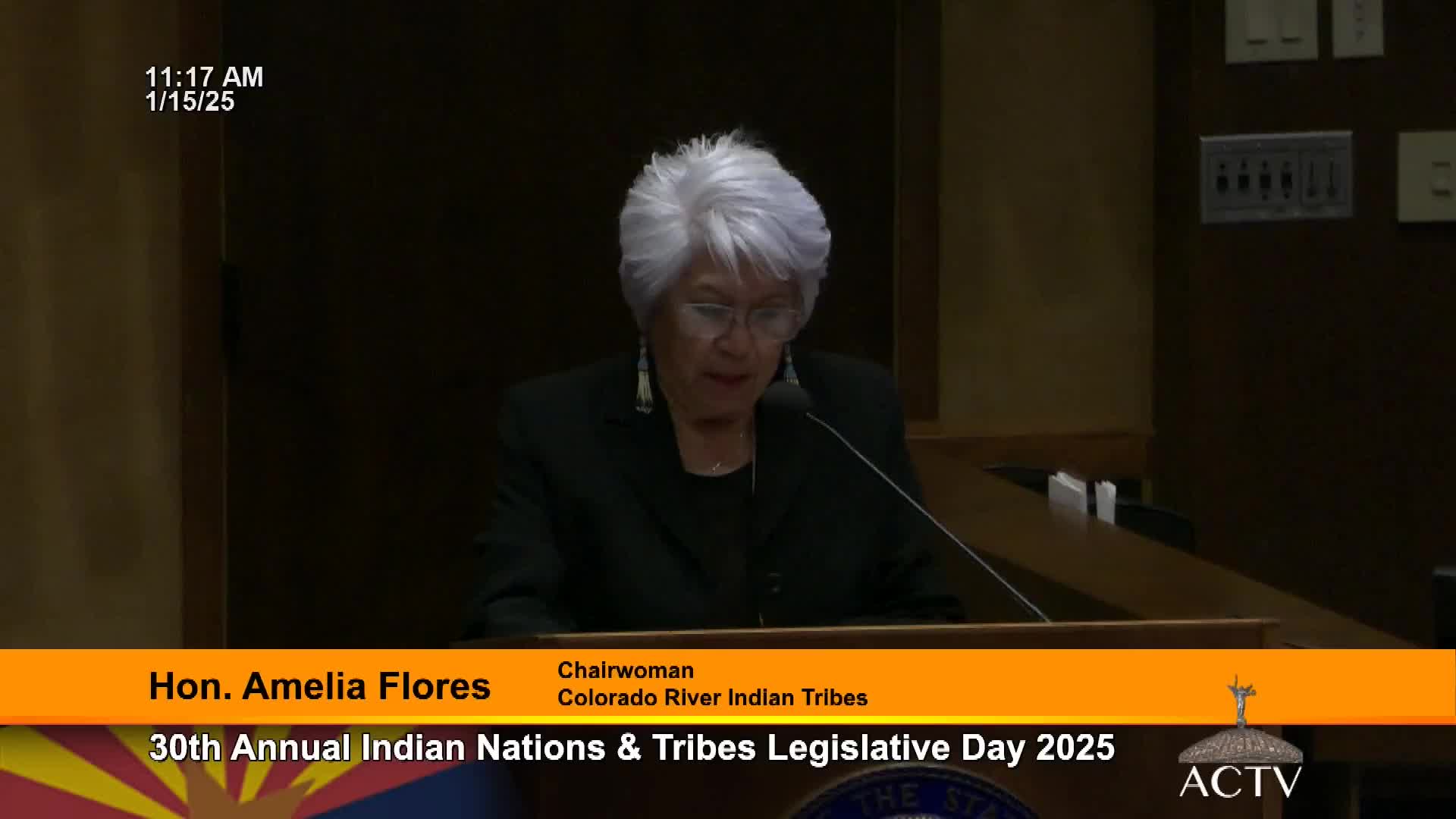Tribal leaders press for protection of Colorado River, cite CRIT Water Resiliency Act and drought planning
Get AI-powered insights, summaries, and transcripts
Subscribe
Summary
Colorado River Indian Tribes chairwoman Amelia Flores and Gila River Indian Community Governor Stephen Roe Lewis urged state lawmakers to protect senior tribal water rights, support water settlements and pursue durable, cooperative solutions to Colorado River shortages.
Chairwoman Amelia Flores of the Colorado River Indian Tribes and Governor Stephen Roe Lewis of the Gila River Indian Community urged Arizona lawmakers on the 30th annual Indian Nations and Tribes Legislative Day to protect tribal water rights and pursue collaborative solutions for the Colorado River.
"Our tribal members thank you," Chairwoman Amelia Flores said, referencing the recently enacted CRIT Water Resiliency Act. She framed the river as central to tribal identity and warned that proposed federal actions could threaten long-established senior water rights: "What our trustee is proposing directly violates the United States supreme court decree in Arizona versus California and is an attack on the long established rule of prior appropriation, and it is wrong."
The remarks underscored several policy items tribal leaders asked the legislature and state officials to emphasize this session: enforcement and implementation of the CRIT Water Resiliency Act; continued use of the drought contingency plan as a cooperative tool; and attention to pending or incomplete tribal water settlements.
Flores reminded lawmakers that the Colorado River Indian Tribes’ water rights are senior in the lower basin and described the CRIT Water Resiliency Act as giving the tribe authority to authorize use of its water off reservation lands. "We now share this great river with all of you, and we must learn to work together to protect and to preserve it," she said.
Governor Stephen Roe Lewis noted the Gila River Indian Community’s 2004 Arizona Water Settlement Act and praised intergovernmental cooperation that helped fund the I‑10 widening project across tribal lands. He urged lawmakers to treat water issues nonpartisanly and to pursue final settlements for Navajo, Hopi and Paiute tribes: "When 1 tribe secures their water settlements, that secures tribal sovereignty." Lewis also emphasized groundwater management, conservation and augmentation as parts of a comprehensive response to long‑term supply challenges.
Both leaders pointed to the governor’s water policy council and to state‑tribal coordination as central forums for developing "doable solutions," including reuse, importation and desalination measures that Flores and Lewis said should be pursued alongside protections for tribal water rights.
Looking ahead, tribal leaders asked the legislature to preserve tribal sovereignty in water negotiations and to collaborate on statutory and policy work this session to ensure water resilience for tribal and nontribal communities alike.
